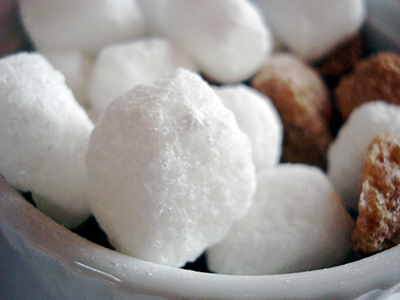
On 3 April 2017, Sky launched its latest advertising campaign onto TV and Cinema screens across the UK. The focus was its new ‘Sky Mobile’ service. The campaign features Tom Hardy, the Oscar nominated actor best known for his roles in 2008's The Dark Knight Rises (as Bane) and 2015's Mad Max: Fury Road (as Mad Max). The campaign features three films, all directed by John Hillcoat (who famously directed 2009's The Road). The first advert is titled Café. This, for me, is a very curious advert - I am puzzled by the role sugar plays in the film. A puzzle that can only be solved once you know the history and geography of sugar.
To explain the puzzle, I will describe the Café advert in some detail. You can watch the advert yourself online: it is available on YouTube (and other websites). Alternatively, details of the campaign can be found here (and all the films).
The Sky Mobile Café advert begins cryptically. The film camera angle is low, at table height. The surroundings are blurry, as the focus is on a glass bowl filed with sugar cubes (to the left) and a cup of coffee (to the right). In the centre of the scene, a man's hand is stacking sugar cubes. They're not neat, straight-lined sugar cubes, but the rough-hewn cubes that tell you the sugar is unrefined. As sugar goes, the less physically refined it is, the more culturally refined it becomes. It's not easy to stack the rough unrefined cubes, but a steady hand is doing just that. A white cube is placed carefully atop a brown cube. The voice over is recognisably Tom Hardy: in his trademark gruff voice, he intones about your monthly data allowance. At this point, the link between the stack of sugar cubes and your data allowance is not clear.
Tom lifts the topmost sugar cube from the stack and toys with it. He gives the sugar cube a trademark Hardy stare: he seems puzzled by the cube as he drops it into his coffee. What is he puzzled about? He's thinking about all that data you use via your mobile network, as he drops another, and yet another, sugar cube into his coffee. (The coffee must be very bitter. Or Tom has a remarkably sweet tooth.) Before Tom can drop another cube into his coffee, a waiter arrives to clean up the cubes that are scattered on the table. The waiter looks scornfully at Tom; Tom doesn't look best pleased with the waiter, either. The sugar is clearly not being used properly. And, according to Sky, neither is your data. Apparently your data is precious and should not be taken back (as the waiter does with the sugar cubes). You should be able to keep your data: to demonstrate the point, Tom takes the sugar bowl and tips all the cubes into his cardigan pocket (for later). Then, he propels the empty bowl disdainfully across the table. A clear message to the waiter: I have taken all the sugar cubes! And off Tom walks, into the sunset.
For me, the puzzle is not that Tom seems unconcerned about pouring sugar cubes into his cardigan pocket (thereby risking a sticky unpleasantness that will not wash out easily). Nor does the puzzle lie in Tom's somewhat grumpy demeanour, leaving you to wonder what kind of customers Sky imagines it is appealing to. The puzzle is the sugar.
Rhetorically, the advert is arguing that your data is precious and that you should be able to keep it. It uses sugar to symbolize this, because sugar is also precious. Sugar is a clear signal of how refined you are (especially in its unrefined state). More, sugar adds sweetness to things that are bitter (such as coffee). Just as data adds sweetness to your life, by allowing you to watch Hollywood blockbusters and live-streamed television on your phone. Sugar is sweet. Sugar is precious. Sugar is enjoyment.
Sugar is also cheap. The waiter says nothing as he removes the scattered sugar cubes from the table. The cubes must now be thrown away. A waste of sugar. Even so, he says nothing. Sugar is too cheap to raise an explicit objection about its waste. Then, Tom steals – yes, steals! – an entire bowl of sugar cubes and walks out with them. He is not shamed by this act. On the contrary, he is blatant about it: proud even, as if achieving a major victory for freedom. The thief is not even chased by the restaurant staff as he leaves. Nor do we hear police sirens giving chase. Sugar is simply not worth it. Sugar is so cheap, it is almost free: restaurants throughout the UK provide as much sugar as customers want, often in little tubes of refined sugar (which of course is culturally unrefined).
So, sugar is a contradiction. On the one hand, it symbolizes something of value; something to be cherished and savoured; something to be kept. On the other hand, it is cheap and almost valueless, especially in its refined state. Puzzlingly, too, the more sugar is processed and refined, the less healthy and culturally refined it is taken to be. Refined sugar now carries associations with ill-health and diabetes, yet the sugar consumed in the right way carries a sense of energy (for example, in energy drinks) and refinement (for example, in luxury chocolate bars); and, if Coke adverts are to be believed, it is even the taste of freedom, peace and harmony – for the world. How can sugar be all of these things? The answer lies in its changing geographies.
For the second part in this series head over to Another spoonful? Understanding the Place of Sugar - Part Two
Further Reading
An encyclopaedic account of sugar can be found in Darra Goldstein's huge book, The Oxford Companion to Sugar and Sweets (2015). Current students may want to look at DTS206's block on food, affluent diets and their effects on the environment.
Steve Pile is Professor of Human Geography. He is currently writing about electricity for the new Environment and Society module, D213, which you will be able to study from 2018 onwards.
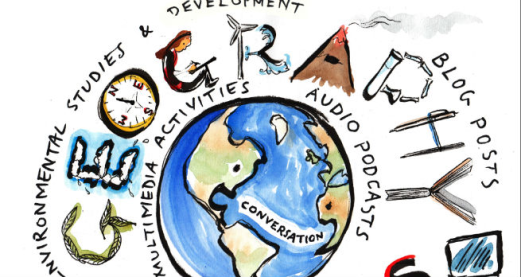
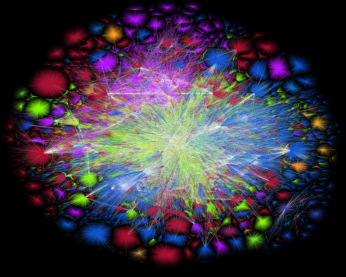
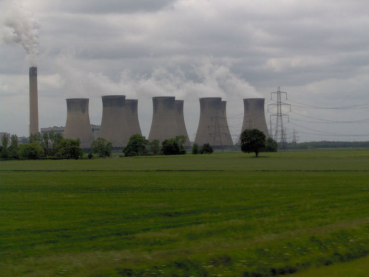

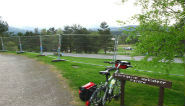
Rate and Review
Rate this article
Review this article
Log into OpenLearn to leave reviews and join in the conversation.
Article reviews